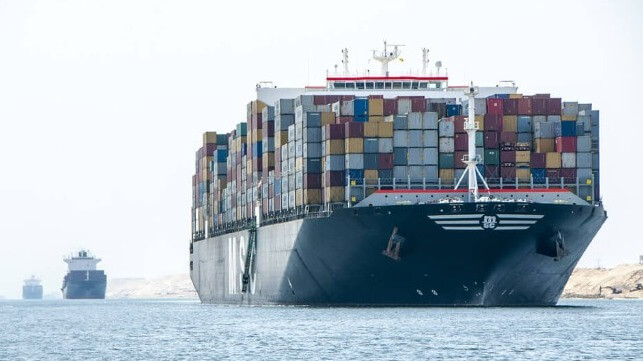SCA Promises That it Will Not Sell Investors a Stake in Suez Canal

Egypt is looking for outside investors for the Suez Canal, but without giving up control over its operations, according to the Suez Canal Authority (SCA).
In February, SCA head Osama Rabie announced that the authority intends to set up a parallel investment fund for canal projects with an initial capital of $80 million. Soon after, the Egyptian government introduced a draft law to implement this fund as a separate legal entity, distinct from the SCA. It is intended to support the canal's development and "confront crises and emergency situations" like a force majeure incident or an economic downturn.
Speaking to reporters Thursday, Rabie emphasized that the SCA "cannot sell the canal or rent it," and that the investment fund will not mean any sale of a stake in the strategic waterway to foreign companies.
The Suez Canal brought in nearly $8 billion in revenue from ship tolls and other services in 2022, making it one of Egypt's most important sources of foreign exchange earnings, in addition to tourism and remittances.
SCA's recent investment deals have been centered not on the canal, but on port concessions. In August, the SCA signed an agreement with Maersk that will usher in a $500 million private investment in a container terminal in East Port Said. The infusion of funds will support construction of a new 1,000-meter berth with 30 STS cranes, expanding on the existing 500-meter berth. The agreement calls for creating a "green" terminal operation by 2030.
According to Reuters, the Egyptian government has entered into similar terminal-development agreements with Hutchison Ports, Cosco and CMA CGM. Taken together, these deals could bring in private investments of up to $800 million.
Egypt is creating a similar investment-fund structure for remittances from the Egyptian diaspora. Like many developing countries, Egypt receives billions in foreign remittances from migrants who have moved abroad; migration minister Suha Gendy told Asharq Business in November that the government will set up an exchange-traded fund to "attract savings from Egyptians living abroad and inject them into major investment projects." As of 2021, remittances were Egypt's largest source of foreign exchange earnings at about $31 billion a year.
The new funds are being rolled out while the Egyptian government is attempting to contain serious economic problems driven by a foreign exchange shortage and rampant inflation. The International Monetary Fund has agreed to loan Egypt $3 billion for stabilization, contingent on a series of reforms, including privatization.
